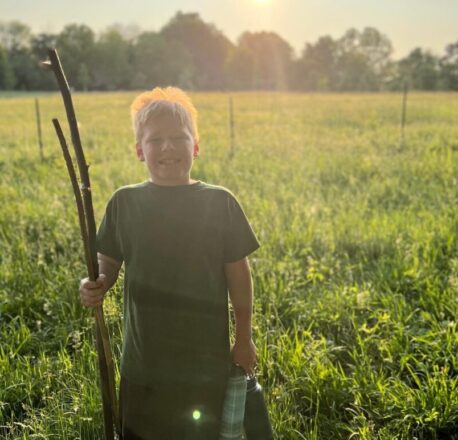Boys
Stillness and the Great Mismatch
We have a problem with boys. Not with who they are, but with what we expect them to be.
In modern classrooms, boys are told—implicitly and explicitly—to sit still, stay quiet, and conform to an environment designed for order and compliance. For many boys, this is a daily exercise in failure. The expectation to suppress movement, emotion, noise, and energy is not just unnatural; it’s misaligned with how boys are wired. And then we wonder why so many of them fall short, act out, or struggle.
The DSM (Diagnostic and Statistical Manual) outlines criteria for ADHD—difficulty staying seated, trouble focusing, fidgeting, impulsivity. If we’re honest, it reads like a list of traits that simply describe a normal 8-year-old boy who needs to use his energy. Have we pathologized boyhood? Are we diagnosing nature as a disorder?
The explosion in diagnoses, especially among boys, should give us pause. Maybe the real issue isn’t in their brains, but in our buildings. Boys weren’t made for fluorescent lights and rigid schedules. They were made to run, to build, to explore, to wrestle, to invent, to dig trenches and climb trees. They were made to be outside, working with their hands, burning off the enormous stores of energy God gave them.
We need to simplify boys’ lives. Fewer screens. Fewer bells and charts and test scores. More dirt under the fingernails. More time to create—whether that’s carving wood, writing stories, fixing engines, or tending animals. Boys thrive when they’re trusted with real work and allowed to live in rhythm with nature instead of against it.
Let’s stop asking boys to be something they’re not. Let’s give them space to be who they were made to be.


The Gravy Moments
Ecclesiastes 3:12-13 says, “I perceived that there is nothing better for them than to be joyful and to do good as long as they live; 13 also that everyone should eat and drink and take pleasure in all his toil—this is God’s gift to man.”
Work provides purpose. The brush pile, the blisters, the sweat on the back of your neck—that’s where boys are formed. When the work is done, then there’s ice cream and rest.
After hiking through the wilderness there’s the laughter around a campfire. When the fire dies down and the stars come out, there is rest.
That’s the gravy.
We don’t bribe boys with fun to get them to work—we honor their work with rest. We teach them that effort comes first, and joy follows. That the reward is sweeter when it’s earned. That life is better when it’s not all scheduled and structured, but has room for surprise, silliness, and Sabbath.
Boundary Waters was five days of paddling, portaging, sleeping under the sky, and learning how to carry your weight—literally and figuratively. But the best stories from that trip weren’t on the itinerary. They were the laughs in the canoe. The inside jokes. The chipmunks. That’s the gravy.
Gravy isn’t the goal. It’s the overflow. It’s what shows up when you live rightly and let life unfold.